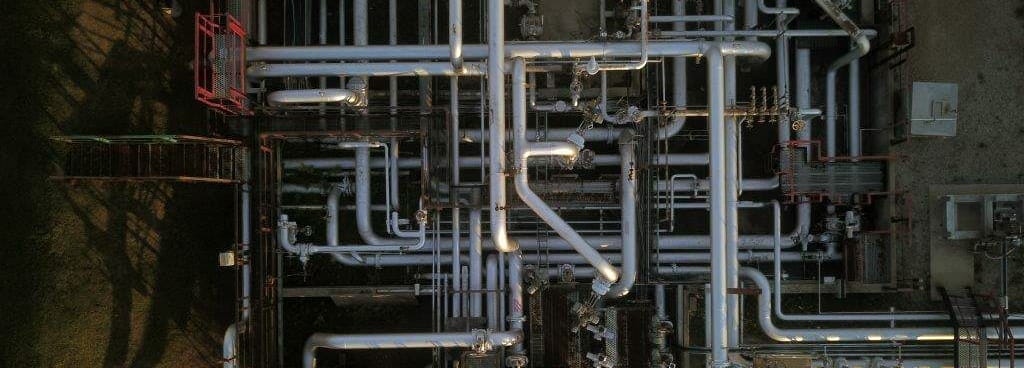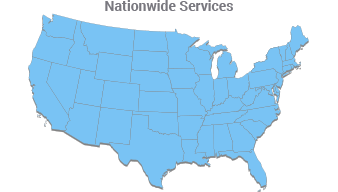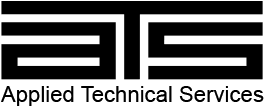- Home
- Services/IndustriesServicesindustries
- About Us
- LocationsStatesAccordion ContentAccordion ContentAccordion ContentAccordion Content
- Job Openings
- Quick Links
- ATS Family

Applied Technical Services offers drone inspections to companies who need to assess the condition of their piping systems. By conducting inspections this way, our Engineering team cuts down on the cost to our clients and increases the efficiency of the inspection process.
Why You Need to Have Piping Systems Inspected
A leak in a pipe can cause a variety of unwanted problems, ranging from lost efficiency and preventable costs to environmental damage and liability for lawsuits.
To avoid an assortment of negative consequences, owners request inspections of their piping systems. This process locates areas that maybe causes for concern, identifies their origins, and prescribes methods to alleviate the issues. Conducting a thorough piping system inspection can be demanding and imprecise work, however.
Expansive process piping can stretch for hundreds or thousands of feet in an industrial facility — the sheer size of which makes efficiently locating a localized issue area (such as sections suffering from corrosion) like finding the proverbial needle in a haystack. While inspectors and engineers can narrow the search to certain areas that are more susceptible to corrosion and leaks than others based on the system’s design, the sheer size of a piping system limits the efficiency of a standard API 570 piping inspection.
ATS employs a variety of methods to investigate flaws in piping systems, using everything from radiometric profiling to visual inspection to discover these problems. ATS Engineering now has a new, more efficient method in our toolkit for locating defects in sprawling process piping: we now perform drone piping inspections.
Benefits of Drone Piping Inspections
Otherwise known as UAVs (unmanned aerial vehicles) or sUASs (small unmanned aircraft systems), drones represent a huge step forward in piping inspections. These remotely piloted units, capable of easily surveying vast expanses of pipe, afford inspectors unparalleled ease of oversight from their aerial perspective. Outfitted with high-quality cameras, our drones streamline the visual inspection process; they can capture the overall condition of pipes much more quickly than a foot patrol can or, in the case of pipe racks, without the expense of scaffolding or manlifts because of their flight capabilities.
Our drones come equipped with a Real-Time Kinematic (RTK) system that allows them to navigate according to a global positioning system accurate to within a centimeter. Furthermore, pilots can engage hover and stability modes that enable the drone to capture extremely steady images for maximum footage clarity. These units can achieve long flight times and feature multiple camera mount positions, making them perfect for visually inspecting long piping systems.
Our drone units offer more than just versatility and improved efficiency during the visual inspection phase. By using our thermal imaging cameras, we can also perform a limited nondestructive examination during flight. Analyzing thermal images of piping systems allows our inspectors to judge whether sections have leaks or thickness deficiencies. This capability drives down the overall cost for our client and helps inspectors to identify the areas that pose the biggest problems to the health of the piping system.
Regulations for Commercial-Use Drones
The Federal Aviation Administration (FAA) upholds a set of regulations for commercial drone usage in the interest of maintaining safe and orderly airways. ATS abides by the following rules when performing drone pipeline inspections:
- Every drone is registered under part 107 with the FAA
- All flights are piloted by a technician licensed by the FAA for commercial drone use
- No drone is cleared for flight if it, along with any ballast or payload, weighs 55 lbs or more
- Every outdoor flight is contained to the pilot’s line of sight
- Pilots fly below the regulatory limit of 100 mph
- Units are never flown directly over a person’s head
- Drones are never piloted from a moving vehicle
Applied Technical Services is a trustworthy provider of testing, inspection, and consulting engineering services that works with clients from a variety of industries. In the decades since ATS’ founding in 1967, we have continually expanded our capabilities so that we could deliver quality services to a growing list of clients operating around the globe. The industries that most benefit from our drone-assisted piping inspections include;
Each of our drone inspections is performed by a team experienced in operating UAVs: one technician (licensed by the FAA to pilot a commercial drone) flies the unit while another (an expert camera operator) captures necessary footage. Unique among drone inspection companies, ATS uses our own certified API inspectors and professional engineers as pilots and camera operators when conducting these inspections. Because of their multiple areas of expertise, our team is qualified to provide not only data about but also solutions to the issues that they locate over the course of an inspection.
The inspection team reviews the images and video gathered during their flight, drafting a report based on what they have observed. Their report will note areas of concern, suggest preventive maintenance actions, and prescribe repair measures should they prove necessary. We take API 570 piping inspections to another level with drones complementing our standard inspections.
ATS' Commitment to Quality
We at ATS pride ourselves on delivering exceptional quality in every service that we provide to our clients. Businesses that elect to work with us can count on receiving detailed, clear, and accurate reporting with which they can make informed decisions. Furthermore, our technicians pledge to return these insights within a short turnaround window so that clients can act on them in a timely manner. By remaining accessible, responsive, and engaged when handling client questions and concerns, ATS’ personnel ensures accountability in our customer service.
If your company needs a comprehensive analysis of your piping system, contact ATS for information about our drone piping inspections — We take a closer look!

Request Form
"*" indicates required fields
Camera Inspections
